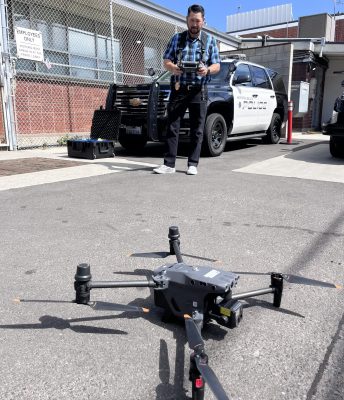Watch where you have a car crash
Cities are becoming more and more creative about ways to provide revenue for their coffers. In the light of end run after end run by the state to disrupt their structural revenue base, such as the latest hit, redevelopment money, cities need to find ways to obtain more direct fees for services.
One type of fee that has been used only in smaller communities just got a high profile city to recommend implementation. And, because of it, the whole concept may have just bitten the dust.
Two weeks ago, the City of Sacramento approved a recommendation that, if you are from out of town and have a traffic accident inside their city limits requiring the fire department to respond, you would be responsible for the cost of that service. The fees would escalate if a helicopter is required to ferry an injured person from the scene.
The theory is that the cost of this would (should?) be covered by insurance. Don’t hold your breath.
The city of Roseville, a Sacramento suburb, has had a “crash tax” for two years. At next week’s City Council meeting, they are scheduled to review rescinding it. Why? The system was anticipated to deliver a $100,000 annual revenue level, yet has only produced $40,000. And, it is thought to have produced a backlash. It is thought in part responsible for reducing visits to its large regional shopping mall in favor of others in cities without the fee.
Fees on visitors are one of the easiest for a city council to promulgate, since it will be paid by people who don’t vote for them. The most ubiquitous is the hotel tax. Only visitors pay for that. That’s, in part, why they are so high. But, there is a much more important principle involved here.
Fire services pride themselves on the intricate structure of community-to-community help known as “mutual aid.” This system is set up to enable agencies to respond to events without leaving sections of an adjoining city uncovered. All South Bay cities, in fact nearly all California fire agencies, have such plans in place. It works extremely well.
Under the theory of the “crash tax,” agencies should be charging each other every time an event requiring such coverage occurs. Aside from the monumental amount of paperwork that would be involved, a city might just opt out of this essential system for reasons of cost. It would be insane and probably cost lives and property.
Specifically with the “crash tax.” a person who is injured might be inhibited from calling for help when they really need it, fearing the cost. This should not even be an issue in such a situation.
Cities need to raise money. There may be other ways for them to be compensated for the work they do from insurance, particularly for their paramedic services. However, this fee is not the way to do it. ER









